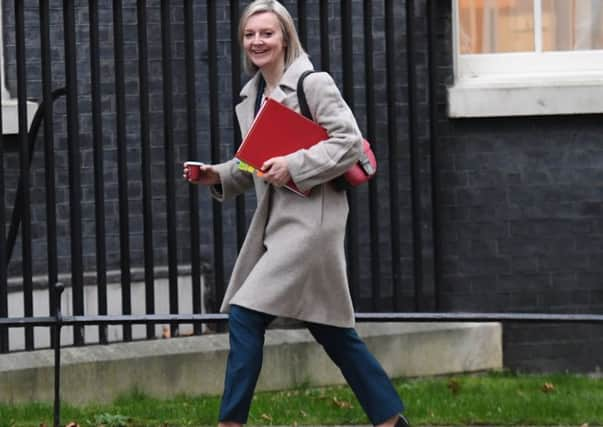Liz Truss: Tear away red tape to build a better Britain


When I moved to London from Leeds as a graduate in the 1990s, I came because of the opportunities on offer here. I could afford to find somewhere to live. But young people these days struggle to get flats near their jobs.
This is deeply economically damaging, as growing companies need to attract new staff to continue developing.
Advertisement
Hide AdAdvertisement
Hide AdAnd we know this would help increase wages: doubling the size of a city leads to an increase in its productivity of up to five per cent.
But it’s not just about economics. Accepting the status quo is bitterly unfair.
There are lots of claims that increasing return to capital, rather than workers, is being driven by industrial and technological factors.
But in fact, according to a study by the American economist, Matthew Rognlie, increasing wealth inequality can be blamed almost entirely on disparities in housing wealth.
Advertisement
Hide AdAdvertisement
Hide AdThat’s why Sajid Javid’s bold planning reforms are so important. We also need to liberate business planning in high-growth, free enterprise areas, and remove the strict controls that get in the way of prosperity.
That’s why we’re piloting a manufacturing zone in the East Midlands, where all the planning is pre-agreed and manufacturers can get straight to work on building their factories.
And we could do even more. I would like to see more of the development model used to build Canary Wharf. We could see it bettered up in Leeds or Newcastle – a Canary North!
What could stop us taking advantage of these opportunities? What could stop us unleashing the secrets of our success?
Advertisement
Hide AdAdvertisement
Hide AdThe answer is – those people with a vested interest in more government. They want a thicket of regulation to grow, as they are the ones who know how to hack through it. Who benefit from the status quo, oppose change, and want to pull up the ladder behind them.
They can be the lobbyists. They can be the unions. They can be the bureaucrats. They can be the NIMBYs. I call them The Blob. Gloopy. Treacly. Hard to define. Harder to resist.
They say they want to protect people and jobs. They say they only want this tiny change in legislation. And they will ask again and again for government favours – arguing that they are the exception, that their cause deserves coddling and sympathy.
This effect is described in The Captured Economy, by Brink Lindsey and Steven Teles. They talk about the situation in the US, where too many companies are lured away from truly productive activities, and towards rent-seeking, hunting for special favours and handouts.
Advertisement
Hide AdAdvertisement
Hide AdI believe one of the main roles of government – and this Government in particular – is to challenge, not succumb, to the Blob and to keep our economy free and fair.
It’s vital to our mission that we fight the forces of vested interest and make sure our country’s opportunities are open to everyone – big or small, north or south, man or woman. I am confident that we can continue to hold back the forces of The Blob.
Britain is the home of economic freedom, with liberty guaranteed by the independence of our state institutions, and an absence of corruption assured by transparency.
We’ve come a long way in the last seven years – championing free enterprise, tackling the abuse of lobbying and keeping the voices of protectionism at bay.
Advertisement
Hide AdAdvertisement
Hide AdThere are many countries across the world that do not get this right, and give in to the intoxicating embrace of institutionalised corruption. Even seemingly healthy democratic countries.
Because the biggest secret is what we don’t do, rather than what we do do. We are a free country where we eschew suffocating central control and regimented planning.
We believe individuals makes better decisions for themselves. And we believe in people being the agents, not the victims, of their economic destiny.
Liz Truss is the Treasury chief secretary. She gave a speech last week on the new economy and encouraging innovation. This is an edited version.